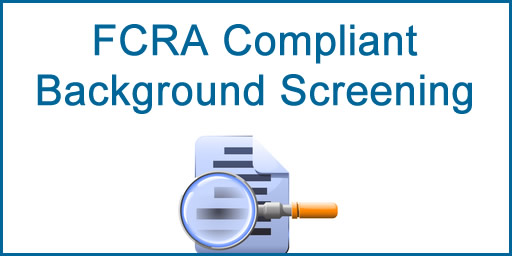
Background screening has become a vital tool in the modern hiring process and staying FCRA compliant is crucial. Various employment screenings open additional layers of information about job candidates that help employers verify that employees can do the specified job with expertise and without incident. Credit checks have become increasingly common screening tools in the hiring process that require some additional care in protecting candidates’ privacy rights.
Getting the Most Out of Employment Background Screening While Staying FCRA Compliant
In November 2019, The Balance reported that 95% of employers conduct some type of background screening, and 16% of employers run a credit check on all prospective hires. Credit checks are important to employers screening job candidates set to work in jobs that deal with handling money. Jobs in industries such as accounting, banking, investing and retail require confidentiality and financial stability and integrity.
While employers rely on background screening to gain important information employees may not feel eager to share—or do not know how to broach the subject—they must also stay FCRA Compliant with the requirements associated with the FCRA. The Fair Credit Reporting Act (FCRA) is federal legislation written and passed to facilitate accurate, fair and confidential background screening that include those involving consumer credit information.
Here are some key ways to conduct compliant employment screening for important financial positions while complying with FCRA compliant guidelines.
1. Inform the Job Applicant or Employee About a Background Check Before Starting the Process
Employers must provide a clear document, providing written disclosure that they may conduct an FCRA compliant investigative consumer report to learn more about the applicant or employee and his or her mode of living, financial responsibility, reputation and character. In this document, it is also important to alert the employee consumer about his or her right to request a complete record of the scope and nature of the FCRA compliant background screening.
2. Obtain Authorization from the Employee
At a minimum, an employer must inform the employee and obtain authorization to proceed. When the background screening includes medical information, such as details on a workers compensation case, the employer must take special care to get the employee’s authorization. Further, the employer must ensure that the medical information is relevant to their background screening.
3. Certify to the FCRA Certain Details About the Background Check
The FCRA requires employers to certify that they have performed the disclosure, authorization and distribution requirements before proceeding. To be FCRA compliant they must also show that they have complied with all other laws and regulations.
By performing FCRA due diligence before and after screening potential workers, employers can learn invaluable information about candidates and employees while protecting their business against FCRA violations.
Disclaimer Statement: All information presented is never intended as legal advice and is for information purposes only.



Leave a Reply